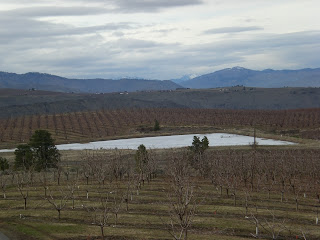 My need for petunia bedding plants and a store’s great price
had brought me to this sale rack. But there was one problem: only one flat remained. It had no label and no buds to hint at the color of its eventual flowers. I bought it anyway, deciding this year I’d live with “Petunia Surprise.”
My need for petunia bedding plants and a store’s great price
had brought me to this sale rack. But there was one problem: only one flat remained. It had no label and no buds to hint at the color of its eventual flowers. I bought it anyway, deciding this year I’d live with “Petunia Surprise.”
As I
planted the tender starts, I was reminded of few principles from
scripture. One is that God knew this plant from its seed, just as He knows
us from the very beginning. With our son and wife expecting their first baby
(and our first grandchild) this summer, I think again of Psalm 139:13-16. We’re
not randomly manufactured, but divinely “knit together” in the womb—“fearfully
and wonderfully made.”
Another is
that God has a plan for our lives. We are called to worship and serve Him—to
bring Him glory, even as petunias in their “plant way” declare the amazing plan
of their Creator. The problem comes when
our self-doubts and stubbornness avoid God’s opportunities.
Moses, rescued as a baby from slaughter, raised in a palace, when called to lead the Hebrews from slavery, handed God this story about being “incompetent”: “I have never been eloquent…I am slow of speech and tongue” (Exodus 4:10). God never asked if Moses had passed Speech 101.
Gideon, called
to defend his homeland, whimpered lack of social position: “My clan is the
weakest in Manasseh, and I am the least in my family” (Judges 6:15). God wasn’t
looking for social pedigree.
The infamous “sluggard” of Proverbs said, “It’s too hard”: “There is a lion outside…I will be murdered in the streets!” (Prov. 22:13). Give him an A+ for imagination and an F- for trust.
Isaiah
didn’t consider himself spiritual enough for a holy task: “I am a man of
unclean lips, and I live among a people of unclean lips” (Isaiah 6:5). God’s
remedy was one purging hot coal away.
Jeremiah
considered himself a weak link: “I do not know how to speak; I am only a child”
(Jer. 1:6). Actually, he was a grown man with the spiritual fears of a child.
Ezekiel was
in exile, hundreds of miles away from his homeland. Plus, who’d want to listen
to somebody preach negative sermons? God was in that assignment, too (Ezekiel
1-3).
God never
intended us to sit in a pot of dirt and do nothing. Jesus said, “I chose you to
go and bear fruit—fruit that will last” (John 15:16). His desire is that we be “rooted and
established in [God’s] love” (Eph. 3:17). Or, as the author of Hebrews said so
eloquently in images of nature: “Land that drinks in the rain falling on it and
that produces a crop useful to those for whom it is farmed, receives the
blessing of God” (Heb. 6:7).
To take the analogy back to petunias, it’s blooming in the unique way that God has equipped us. Those discoveries will go on our whole lives as we grow in faith, love, and service.
“Petunia
Surprise”? I’m looking forward to the glorious shots of color in my yard,
courtesy the Creator.


